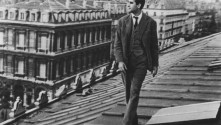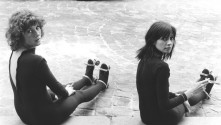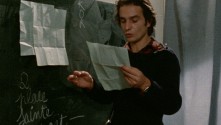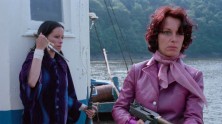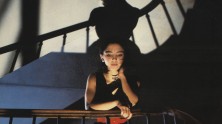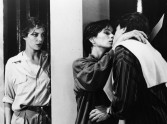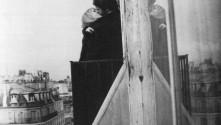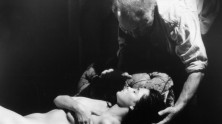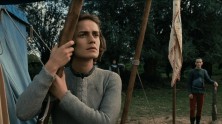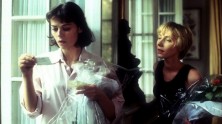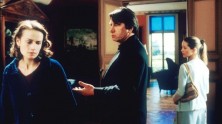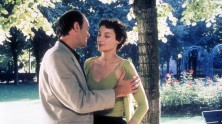



Jacques Rivette:
A Differential Cinema
For the past five decades, Jacques Rivette has produced an incredibly rich and prolific body of work cementing his reputation as one of the masters of the French New Wave. His name is often uttered in reverence along with Jean-Luc Godard, François Truffaut and Eric Rohmer, his comrades in the New Wave’s Gang of Four. His films have not been screened as widely as his peers however, largely due to a perceived inaccessibility attributed to their extended running times; many of these works run well over two hours, most notably the over twelve hour long Out One: Noli Me Tangere (sadly this version is currently unavailable with English subtitles). Yet these larger canvases afford Rivette the space to develop a complex interplay between fiction and reality in which his layering of a world within the larger world of his films is both reflexive and magical.
Rivette had no formal education in cinema. Rather, he spent hours at the Cinémathéque Française in the early 1950s, where he forged lasting relationships with many New Wave contemporaries including Claude Chabrol and Truffaut. During this time he experimented with the short film format while working as an assistant to such filmmakers as Jean Renoir and Jacques Becker. Along with Godard, Truffaut and Alain Resnais, Rivette began writing for Cahiers du Cinéma in 1952, where the critics collectively championed the auteurist aesthetic of directors such as Alfred Hitchcock, Otto Preminger and Anthony Mann. Rivette began production on his first feature in 1957, Paris Belongs to Us. Due to funding problems, it took almost four years to complete. Within this early work, Rivette studies the interactions among a group of stage actors, a frequent concern throughout his career. His next film, The Nun, was also delayed but in this case, it was the interference of censors which limited the film’s release. The Nun marked Rivette’s last project in which he employed more conventional narrative techniques. Beginning with L’Amour fou in 1969, Rivette’s experimentation with documentary techniques frequently featured improvisational performances from his actors. In the 1970s he embarked on some of his most ambitious projects, including the aforementioned Out One and a never-completed quartet of films titled “Les filles du feu” (later renamed “Scenes de la vie parallèle”) which he revisited in 2003 with The Story of Marie and Julien. This period also marked his greatest commercial success with Céline and Julie Go Boating.
Since the 1980s Rivette has continued to explore the complexities of the artistic process (Love on the Ground, La Belle noiseuse, Va savoir) as well as producing fascinating reflections on genre (Up Down Fragile, Secret Defense). In an early interview Rivette described the art of crafting a “differential cinema” which seeks to create a unique experience for the viewer outside of narrative convention. In this varied, essential body of work, Rivette has proven that he continues to welcome that challenge.
